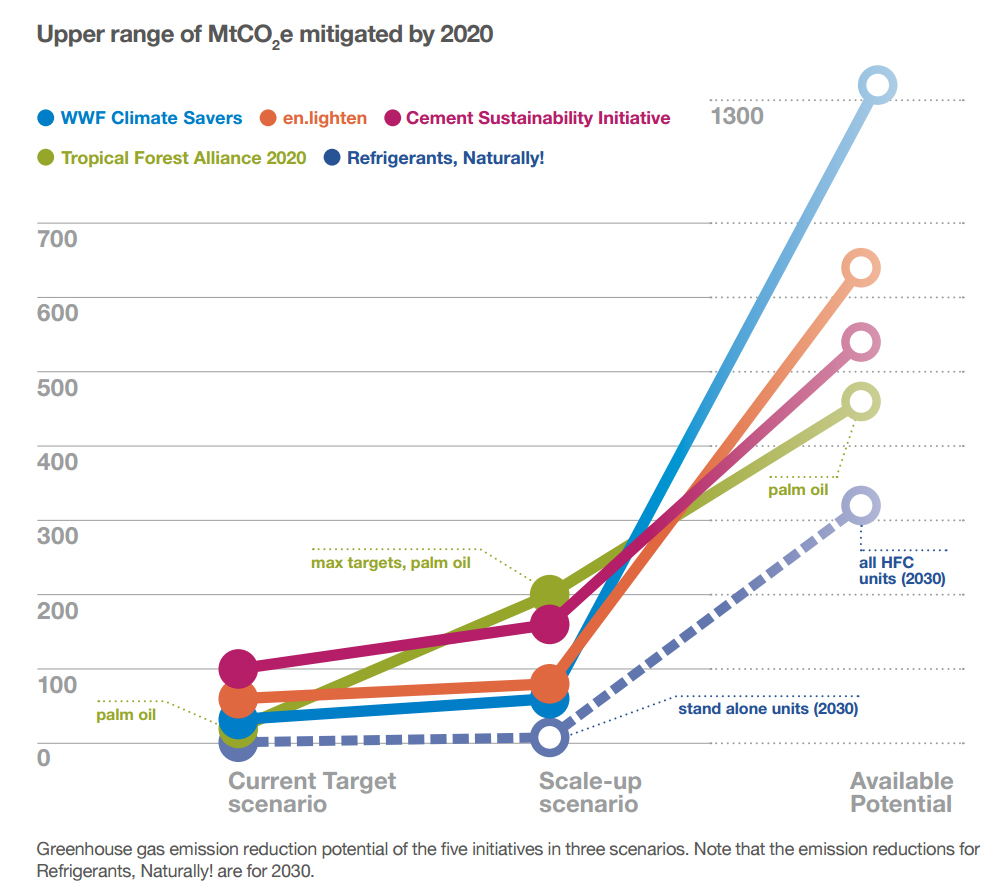Based on our experience here at Arpin and Renewable Now, we think that number is conservative. In ten years we've cut energy consumption by more than 40% and now produce another 20% with renewables. We expect that number to double by next year, and we feel confident that by that same year, 2020, Arpin can offset completely its global carbon footprint (and we are a 250MM international moving company with a large fleet).
So, other companies can equally cut consumption and invest in clean energy. Once they get going and see the ROI, the pace will, no doubt, accelerate.
The private sector could cut more than five hundred megatons of greenhouse gas emissions in the next five years, simply by scaling up existing green initiatives, according to a new report.
Researchers from the University of Cambridge Institute for Sustainability Leadership (CISL) and energy consultancy Ecofys, analysed five current initiatives, such as the Tropical Forest Alliance 2020 and En.lighten.
The report found that expanding these schemes could save emissions equivalent to one years’ worth activity from 130 coal power stations.
The report focuses in particular on so-called ‘cooperative initiatives’ between businesses, Governments and NGO’s.
One of the programmes looked at is WWF’s Climate Savers, which aims to help companies develop zero-carbon business models.
Progressive leadership
Ecofys managing consultant Ann Gardiner said: “Private sector engagement in addressing climate change is growing and if scaled up this new class of collaboration and leadership would undoubtedly help us to reach global emissions targets, which is critical given that there are projections which currently put us on a pathway to reach 3.5–4.0°C (according to the IPCC), 1.5 –2°C above agreed global ‘safe’ levels.
“Undoubtedly, we need to see more progressive leadership if we are going to avoid dangerous levels of climate change.”
The report recommends a 9-step plan to help scale the five initiatives up, including more collaboration, sharing of best practice and better data collection to monitor results.

Mind the gap
Nicolette Bartlett, the senior programme manager at CISL added: “We are seeing a growing interest in pre-competitive collaboration within the private sector to help manage the complexity of global supply chains and increasing resource constraints.
“There are often sound business reasons for companies to want to do this, including brand and reputation building, getting ahead of or shaping regulation, costs savings and creating new markets for their products and services.
“Most significantly, the fact that these initiatives are international in scope means they are helping to close this emissions gap.”
Brad Allen

No comments:
Post a Comment